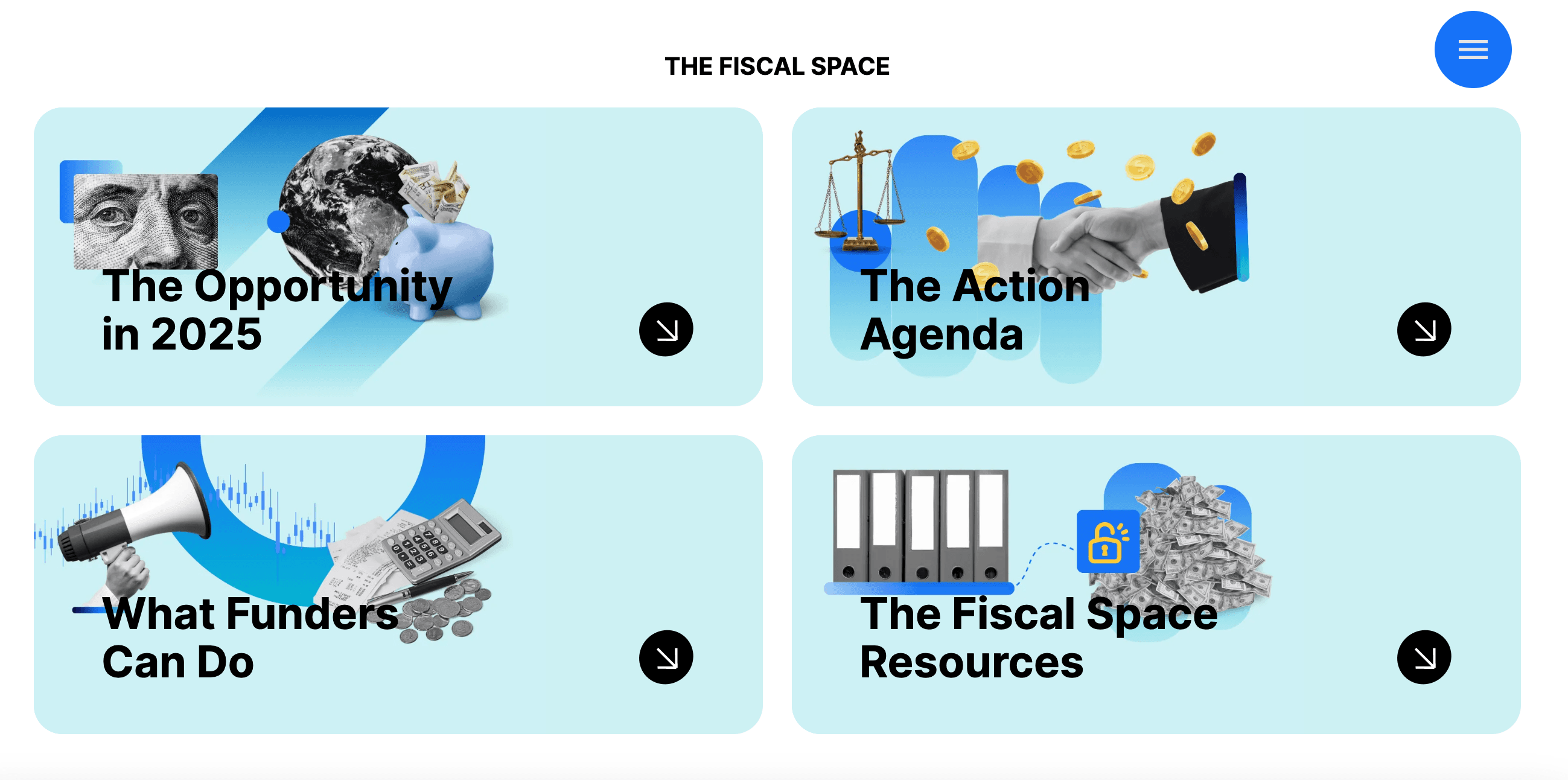Washington, D.C. — April 11th, 2025 — In response to declining philanthropic investment in fiscal governance and growing global financial instability, the Trust, Accountability, and Inclusion (TAI) Collaborative today announced the launch of its new website, Fiscal Space. The platform is designed to spotlight urgent needs and actionable opportunities for funders to support more equitable and sustainable fiscal systems to ensure a country’s finances are managed in a way that is responsible, fair, and transparent.
The launch follows the release of a sobering report from the Independent Expert Group on Debt, Nature, and Climate, which found that many of the world’s 144 developing economies are on an unsustainable fiscal trajectory. Coupled with data showing that only a fraction of international philanthropic dollars goes toward tax, debt, and accountability issues, Fiscal Space aims to mobilize new funding and energize funder engagement around fiscal justice.
“Despite the enormous impact of fiscal systems on social outcomes, philanthropic funding in this space remains shockingly low,” said Michael Jarvis, Executive Director of the TAI Collaborative. “That’s why we created Fiscal Space — to make the case for investing in transparent, inclusive, and accountable fiscal governance. These issues underpin every development priority, from health to education to climate action, and funders can no longer afford to overlook them.”
The website comes at a pivotal moment, as major donor countries roll back foreign aid and governments across the Global South face mounting debt burdens, dwindling budgets, and pressure to raise revenue, often through regressive means that harm the poor and deepen inequality.
TAI’s Fiscal Space platform offers a curated suite of resources and insights, including:
The Opportunity in 2025: Framing the global financing gap and the once-in-a-decade chance for progress at the upcoming UN Financing for Development (FfD4) Conference in Seville.
The Action Agenda: A living archive of promising reforms and real-time experimentation to expand fiscal space for development and climate finance.
What Funders Can Do: Practical ways philanthropies can provide immediate and long-term impact, including technical support, peer collaboration, and strategic funding opportunities.
Fiscal Space Resources: A growing library of tools, data, and case studies on fiscal governance.
As the international aid landscape shifts, the site makes clear that sustainable development will depend on domestic resource mobilization, done in a way that is fair, effective, and accountable.
“We are entering a post-aid world, but that doesn’t mean we have to accept a post-development world,” said Jarvis. “If countries are to become self-sufficient and resilient, we must invest now in the systems that make that possible — from fairer tax regimes to sustainable debt frameworks. Philanthropy has the flexibility and vision to lead here. The launch of Fiscal Space is a rallying cry for funders to act.”
The release of Fiscal Space is timed ahead of the Fourth International Conference on Financing for Development (FfD4), scheduled for June 30 – July 3 in Seville, Spain, where world leaders will set the agenda for global finance over the next decade. TAI urges philanthropy to step up now, so that governments, civil society, and multilateral actors alike can chart a path toward a fairer and more financially just future.
TAI offers pro bono support to funders interested in helping address today’s pressing fiscal challenges. For example, TAI advises on potential investments building on recently completed field mappings for the tax, deb, and budget fields; connects philanthropy with peer funders who have shared interests and experience of funding on these issues; and invites funders to relevant funder spaces to learn more, including about the ongoing FfD process.
Learn more and explore the platform at www.fiscalspace.org.
